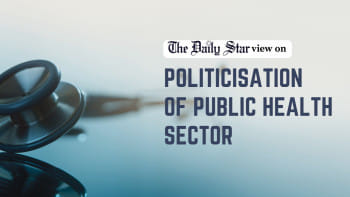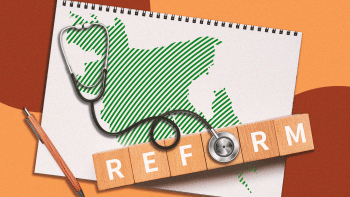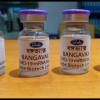Pharmacies must be better regulated

It is alarming to learn of the danger facing patients because of the pharmacies operating without licenses and qualified individuals. According to a report by daily Samakal, there are some 216,791 listed pharmacies or drug stores in the country. Out of them, the registration of 173,693, or nearly 80 percent, has expired, but they still run illegally. Many have even never registered, while most are said to have no pharmacists although the regulations for registration make them compulsory. This state of affairs shows how chaotic the growth of this sector has been, compromising the quality and safety of medications dispensed to patients, especially those from poor backgrounds who rely more on local pharmacies for primary care.
The importance of having pharmacists in pharmacies cannot be overstated. Their responsibility extends beyond merely selling medicine; they review prescriptions, ensure that patients understand how to take their medicine safely, and can advise on the proper storage of life-saving drugs. Without their presence, patients can be exposed to potentially serious errors in medication use. Another concern here is the negligence in drug storage and handling in these stores. Reportedly, many pharmacies do not follow the necessary protocols for maintaining drug quality. Many are even alleged to sell expired, substandard or even counterfeit drugs thanks to poor monitoring by the authorities.
In a country where public healthcare in general is in a shambles, this state of pharmacies is perhaps not surprising, nor does it get much policy attention. As per existing rules, pharmacy registrations must be renewed every two years. However, last year, only 42,896 pharmacies renewed their registration. We understand that their unchecked proliferation over the years—Bangladesh supposedly has five times more pharmacies than needed—can overwhelm the capacity of the Directorate General of Drug Administration (DGDA). The DGDA, for example, is supposed to inspect pharmacies at least once a year, but only 63,971 were inspected last year. This again shows how crucial it is to ensure proper regulation. Unfortunately, the situation has not improved even after the passage of a new drug law in 2023.
We, therefore, urge the authorities to address this situation. They must take steps to ensure compliance of all relevant regulations so that only licensed, properly staffed pharmacies can operate. Routine inspections, strict penalties for any violations, and closure of illegal pharmacies should be enforced without delay. Moreover, there needs to be an overhaul of the pharmacy sector to reduce its unmanageable growth. Any compromise with the safety and quality of medications cannot be tolerated.


 For all latest news, follow The Daily Star's Google News channel.
For all latest news, follow The Daily Star's Google News channel. 










Comments